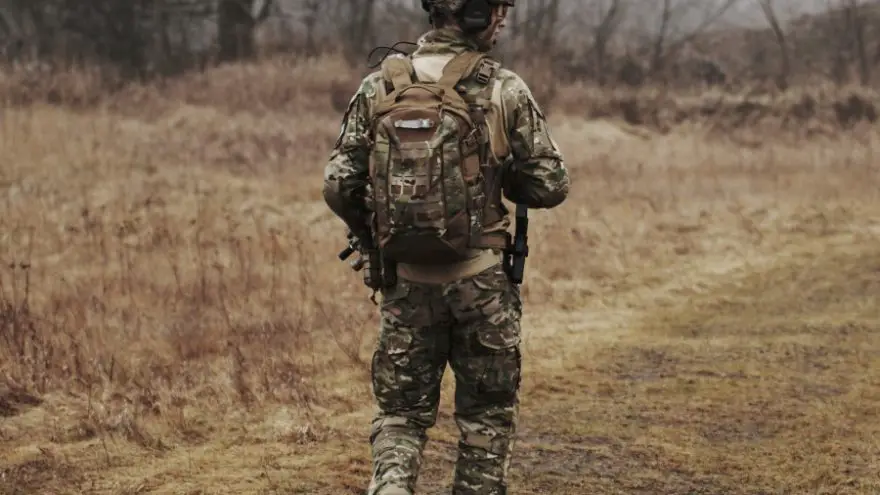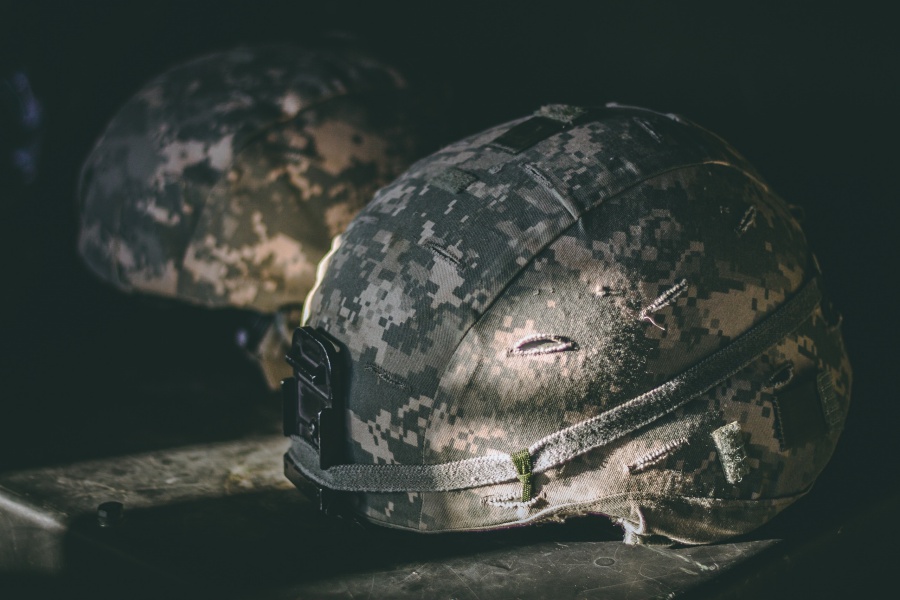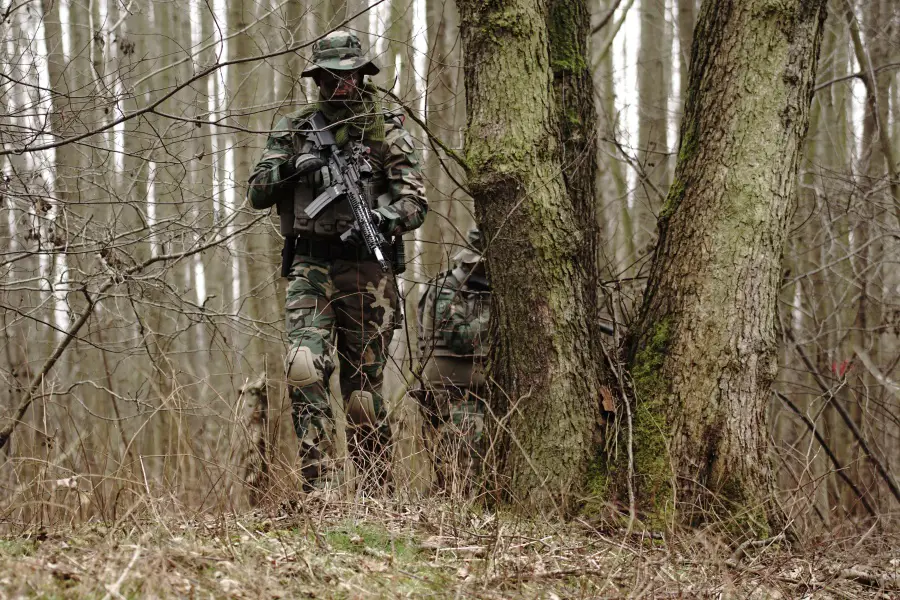How Military Deployment Affects Families

Many parents have chosen the military as a career and there always is a chance for deployment. This can be a very hard choice for parents to choose this career to support their families but there are ways that they make it work for their families. Deployment of a father, mother or spouse is scary to the whole family. It depends how far away they will be and how long they will be gone. There is always a chance that this family member won’t come back or the family member might be injured permanently both mentally and physically. This is not an easy life for military families but with a lot of love and support, these families are strong and know what they are up against. The most important component is to remember this is harder on the military officers because they don’t know what they are up against. This is why it’s very important to be strong and loving and with the help of social media, you are lucky and can talk to your loved one daily rather than wait for letters to take months to arrive.
The deployment of a parent creates many emotions in a family member in the military. The children become fearful, tend to be more anxious, become angry at times and this turns to sadness. This also can affect their schoolwork and cause problems with behavior. This is why parents and other important people in your child’s life need to understand how deployment affects military kids.
Life has changed in the last 10 years and more people are being deployed more than ever that have families. Years ago during other wars, there were not as many men that were parents as there are now who were deployed. The hardship on kids back then wasn’t very well researched and if there was a father who had a large family and was drafted, it was easier for them to not have to serve because of the hardship on the family. There is a very large percentage of parents now that are military personnel that now have kids. The kids that were small back during 9/11 remember some of the terrorism and now these kids are grown and most likely some are parents and serving their country. War has been predominant during the last 18 years, however; during the 60’s schools still had bomb shelters and children often practiced drills. Most homes had shelters built into them in basements. War has been predominant for many decades. The problem is this generation only has lived through the aftermath of 9/11. The Civil War happened over 100 years ago, WW1 and WW11 created issues for soldiers who married and suffered from the effects of chemicals. The Korean War was called the forgotten war but many servicemen also suffered from frostbite and chemicals as they married and raised their families. The Vietnam War brought agent orange in as a chemical and the fathers who served during this war suffered in later years while raising their families.
The kids from the 9/11 generation may learn about these wars in history but the baby boomers also have lived through just as many wars and so have their grandparents and great, great grandparents. The length of deployments ranges anywhere from three to fifteen months. Peacetime doesn’t seem to affect the families during peacetime deployments because the deployments aren’t putting the military in danger and tend to be not as long.
 On the contrary, when soldiers are deployed during wartime, this can be much more stressful for families and the kids suffer the most. Children have enough fears but thinking about their parent away during wartime creates many more fears.
On the contrary, when soldiers are deployed during wartime, this can be much more stressful for families and the kids suffer the most. Children have enough fears but thinking about their parent away during wartime creates many more fears.
There are phases of deployment that people probably think of as just a teary-eyed goodbye, however; this isn’t the overall picture. There are different phases of deployment for military families and all have to be ready for the challenges that follow. The most important aspect is to think about the impact on the children.
There is a period called pre-deployment, where the military family finds out there loved ones is leaving for service. This is when the families become stressed and think about their future. Life insurance may be increased, there are legal issues that have to be addressed and having a beneficiary and creating a power of attorney. Kids worry about their future during this phase.
After the parent has been sent for deployment, kids usually will feel a void because of the loss of the parent in the household. This is an important time for the other parent to work with their kids to create coping skills and independence. Kids will have to help the other parent with the chores and pick up the slack before their deployed parent returns home. A year can be a long time so everyone worries about adjustment when the parent returns home.
When the parent returns home, this is the post-deployment period and things may seem great for a while. Families normally start to struggle because they are all getting adjusted back to their normal lives and time may have changed many things. The children have grown up more and don’t understand what their deployed parent is going through if they start suffering from post-traumatic stress disorder called PTSD.
Not all kids react the same when a parent leaves for deployment. This depends on the age of the child and even babies suffer from their parent’s absence during a deployment. Small children don’t know what deployment really all is about and tend to have more problems with changes when a family member goes to war. This is a good time to reassure your children that you love them and tell them that it’s not their fault their parent left for deployment. Tell your kids that this is mom or dad’s job so they may live a good life.
Children still go through the same stages of separation anxiety with a parent in the military that they do when a parent goes to work. The difference is the parent will be gone longer than a normal working parent. Many kids suffer from all kinds of issues from sleep to behavior problems while adjusting.
The parent that is responsible for the kids at home has to try and control their stress level. Kids tend to feed off the stress of every family member especially the stay at home parent. School-age children suffer more because they have an understanding of what deployment really is. This group of kids have more emotional problems and could have trouble sleeping if they are nervous. The sad thing is even when the parent returns home, kids still tend to have the same emotional issues and they remember these fears for many years. Kids also suffer from trauma when a parent is gone because they don’t know if they will see them again so caregivers and teachers and the parents have to be very positive with these military kids so they can learn to cope and get through one day at a time.
 Teenagers also experience a loss when a parent is deployed overseas. These kids are older and have enough anxiety as it is with hormones and now they have to worry about their parent. The good thing about teens is they are more grown up and mature and are more likely to help with the responsibilities at home. Some still have problems with grades and are anxious. In addition, teens are still very emotional about the absence of their deployed parent. This is why it’s important for the parent at home to put on a happy face because your teens will excel and have fewer problems and issues in regards to the deployment.
Teenagers also experience a loss when a parent is deployed overseas. These kids are older and have enough anxiety as it is with hormones and now they have to worry about their parent. The good thing about teens is they are more grown up and mature and are more likely to help with the responsibilities at home. Some still have problems with grades and are anxious. In addition, teens are still very emotional about the absence of their deployed parent. This is why it’s important for the parent at home to put on a happy face because your teens will excel and have fewer problems and issues in regards to the deployment.
The other half who is left behind, the spouse of the deployed person can become overwhelmed easily. You are a single parent raising your family in some regards and have more responsibilities because you are alone. The parent at home is going to feel more emotional as well and with additional stress, it’s important for the parent at home to talk to someone besides their kids. You don’t want to upset the household and stress out the person who is thousands of miles away because you can’t cope. There are many support groups for parents whose spouses are deployed. Take advantage of going to groups or working with the other at home parents for support.
Kids definitely will know when you are feeling negative when your spouse is gone. If you are unsettled, your kids will be, so try and get enough rest and live one day at a time in order to make it through this stressful period in your life. You signed up for this when you got married and had children so now you have to be the strong one.
Deployment is not an easy life for any family, but you will find out how strong your family unit is when you have gotten through this and your spouse is back home. Life is not easy for many people and harder on the military families but the adjustment is the key for surviving the deployment of a parent and a spouse.







